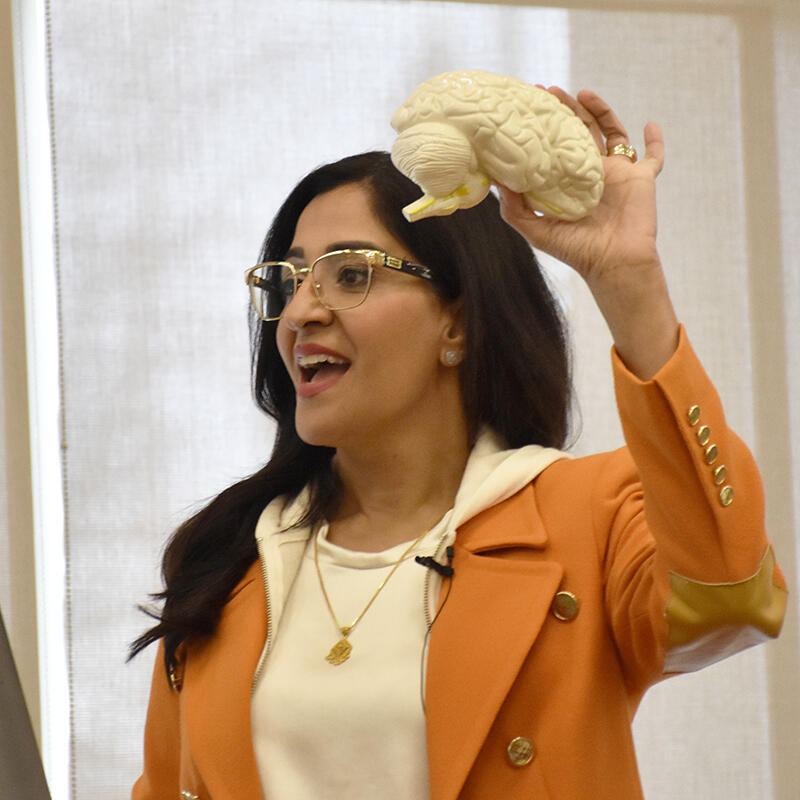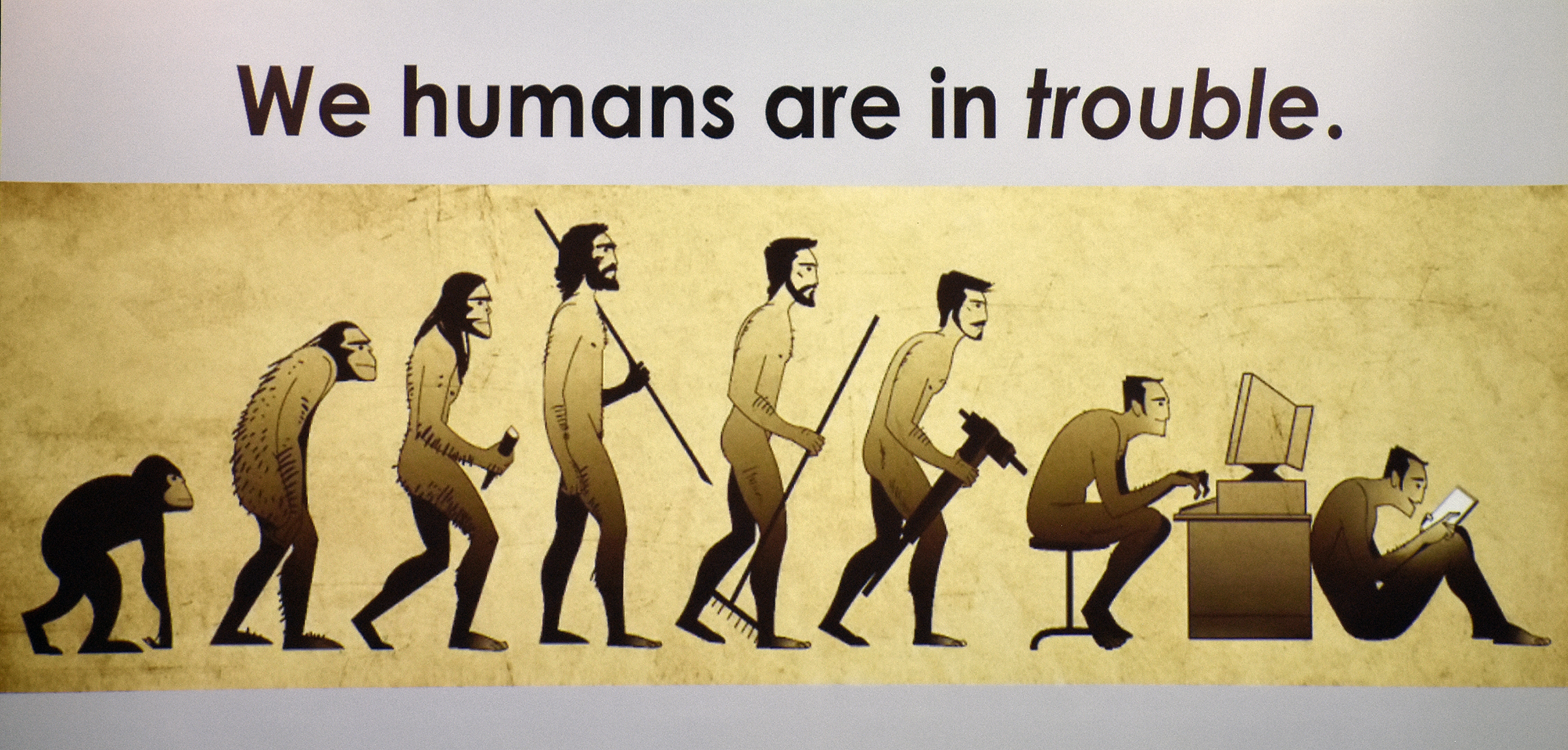When it comes to mental health and self-care, knowing is not doing and simple is not easy.
That was the core message delivered by psychiatrist and author Shimi Kang during the final keynote address of the Women in Leadership Summit, hosted by the Alberta Teachers’ Association at Barnett House on March 8 and 9.
During a talk entitled The Future-Ready Mind, Kang touched on a variety of topics related to mental health, including human evolution, hormone response and modern technology.
Kang explained that a healthy “life diet” for humans involves spending regular amounts of time on our three areas of intelligence: play and exploration, connection with others and down time.
Factors like sleep deprivation, loneliness and perfectionism create stress, which releases the hormone cortisol, which is toxic if left unchecked for extended periods, Kang said. On the other hand, overindulgence in pleasurable pursuits, in the form of food, technology use, social media likes, consumerism, even expressing rage online, releases hits of dopamine, which feels good in the moment but contributes little to overall happiness and well-being.
“Our kids are spending a lot of time on memes and TikTok stuff — too much dopamine — at the expense of happiness,” Kang said.
She emphasized that no one is immune to the stressors and temptations of modern life, including herself. She admitted that she herself has trouble staying off her phone and maintaining healthy eating habits even though this is her field of study. She’s also experienced burnout first-hand.
“I didn’t listen to my body,” she said. “I would just keep not doing the things I knew. I had to apply for disability.”
Kang’s prescription for healthier living includes play, down time, more time outside in nature, doing one thing at a time and daily gratitude. These actions release endorphins, which help relieve pain, reduce stress and improve a sense of well-being.
“Gratitude is the number one skill for health, happiness and relationships,” Kang said.
Changing one’s habits is a process that begins with pre-contemplation before progressing to preparation, action and maintenance, Kang said. It’s an ongoing process and it’s natural to relapse. One of her presentation slides suggested adopting play as a mindset.
“Try new and different ways. Disregard outcome or evaluation.” ❚




